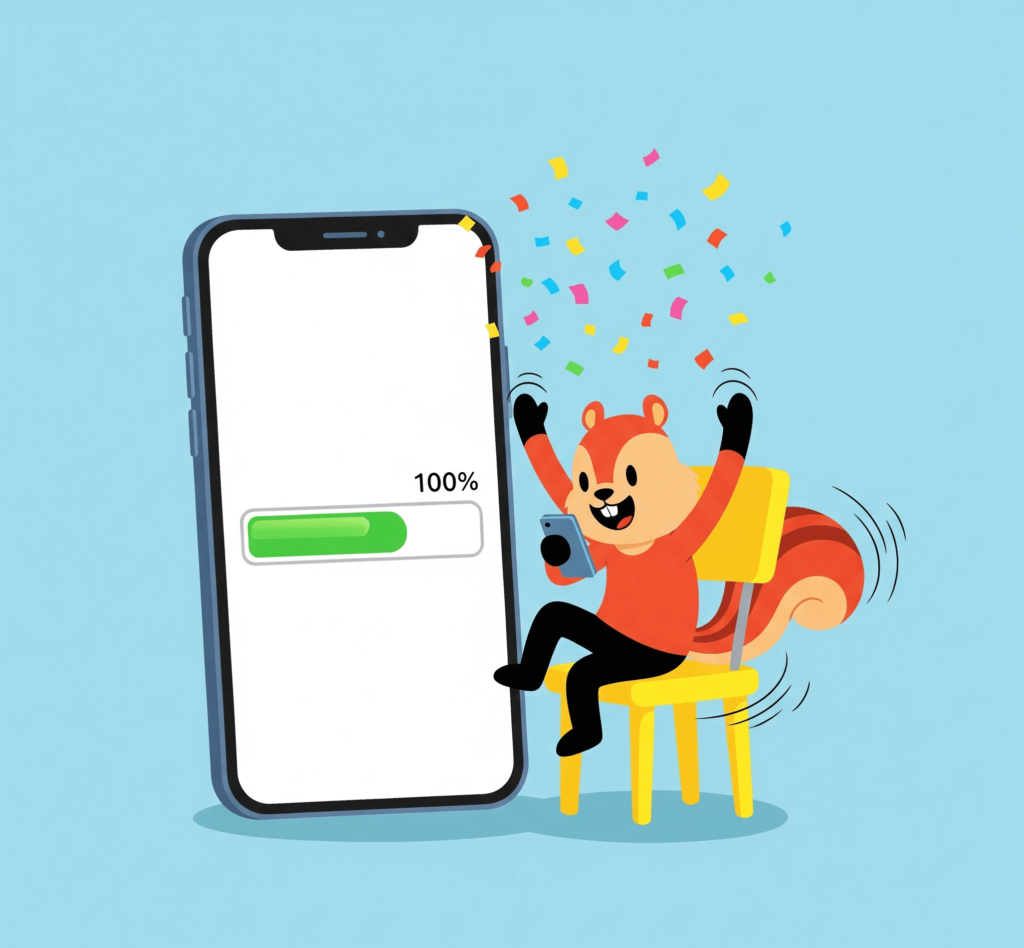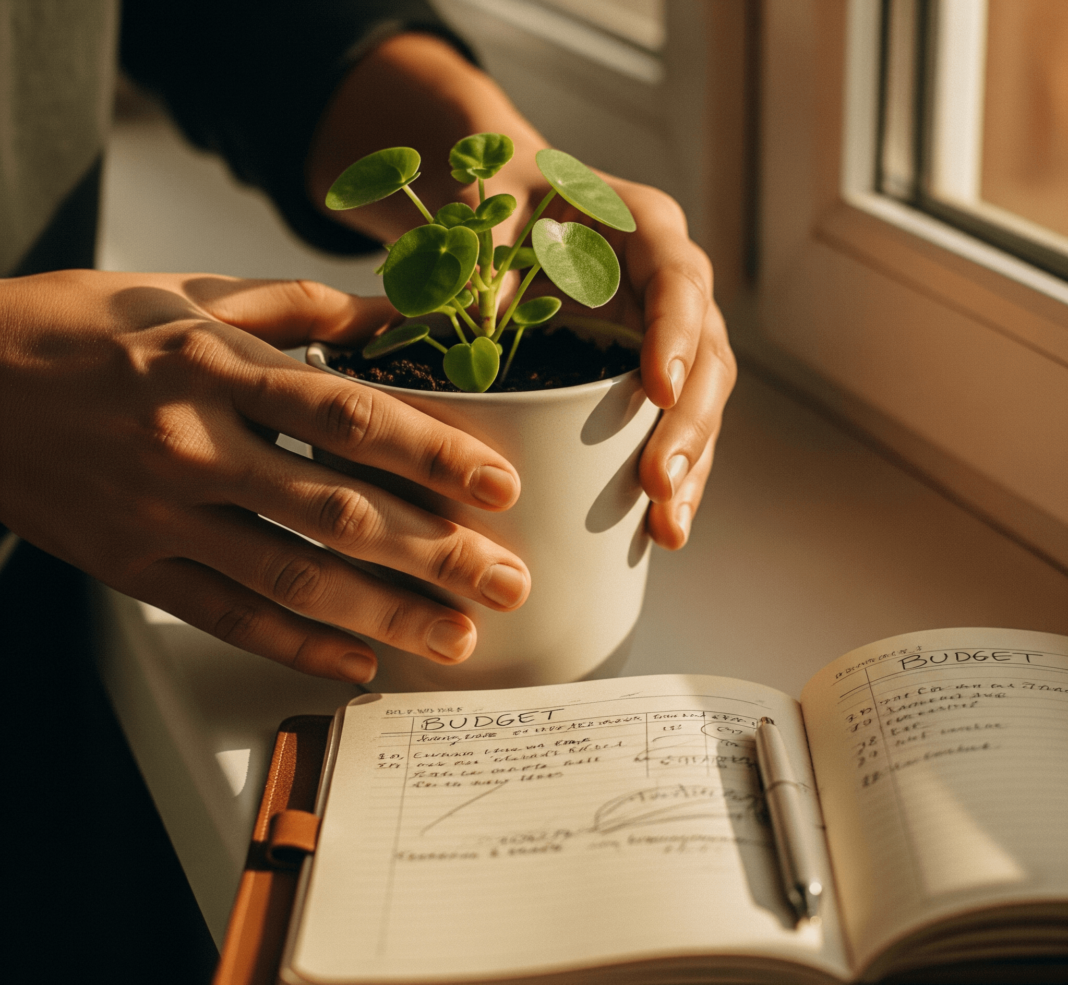I thought “financial wellness” was for people who already had a ton of money—like a reward you get once you’ve figured everything out. But I was so, so wrong. I’ve learned that it’s not about how much money you have. It’s about your relationship with it. It’s about building a few simple, quirky habits that can seriously help you improve your financial wellness without making you feel like you’re on a diet.
I’m a messy person. My apartment is clean, but my thoughts are not. My closet is a chaotic masterpiece of organized chaos. I’ve had my fair share of financial face-plants—like the time I accidentally spent half my rent money on a vintage lamp I just had to have. But because of all that messiness, I’ve learned a few things. So, grab your coffee (or water, if you’re being good today) and let’s talk about the real-life habits that actually work.
1. The “Money Check-in” Ritual: Know Where You Stand
Okay, this is the first and most important habit. You have to know where your money is going. I know, I know. It’s boring. It’s like cleaning out the fridge—you know you have to do it, but you don’t want to see what’s lurking in the back. But seriously, this is a game-changer wellness.
I started doing a “money check-in” once a week, pick a day (usually Sunday night, when the Sunday scaries are at their peak and I need a distraction), and I just look at my bank accounts. I check my spending, my savings, and my budget. I’m not judging myself; I’m just looking at the numbers. It takes like, ten minutes.
It’s like stepping on a scale. It might not be the number you want to see, but at least you know. Once I started doing this, I stopped getting those random financial gut-punches. You know, when you check your balance and you’re like, “Wait, where did it all go?” Now, I know. I’m in control. I’m aware.

This simple habit helped me catch a sneaky subscription I forgot about (I swear, these companies are like ninjas), and it helped me realize how much I was spending on stupid stuff, like delivery fees from my favorite pizza place. It’s a habit of awareness, and it’s the foundation for everything else.
2. The “Future You” Fund wellness: Make Saving a Non-Negotiable
You know that person in your head? The one who is totally rocking it? The one who goes on cool trips and has a solid emergency fund and doesn’t have to stress about a surprise car repair? That’s “Future You.” And you need to pay them.
This is the “pay yourself first” principle, but with a personality. When you get paid, the very first thing you do is move money into your savings. Before you pay rent, before you buy groceries, before you do anything. You pay yourself. wellness
I have an automatic transfer set up that moves a chunk of money from my checking account to my high-yield savings account the day after my paycheck hits. I don’t even see the money. My brain just thinks my paycheck is a little smaller than it is. It’s like a money magic trick.
It’s a small habit that builds a huge sense of security over time. That savings account is your “Future You” fund. It’s for emergencies for that trip you want to take for a better life. It’s a habit of prioritizing your future self over your present-day impulses. And trust me, Future You will thank you for it.
3. The “No-Spend Day” Challenge: It’s a Game, Not a Punishment
You ever feel like you have to spend money every day? Like, you have to buy a coffee or a snack or something? It’s a weird feeling, this pressure to consume.
So, I started a “No-Spend Day” challenge. Once a week, I try to go a whole 24 hours without spending a single dollar. No coffee run, no snacks, no online shopping. Nothing.
It’s surprisingly hard, but it’s also a total eye-opener. It forces you to get creative. You have to eat the leftovers in the fridge, drink the coffee you make at home. You have to find a free activity, like going for a walk or reading a book.
I once spent a whole Saturday without spending any money, and I ended up going to the park, people-watching, and then making a weird but delicious “everything-but-the-kitchen-sink” soup from the ingredients in my pantry. It was one of the most relaxing days I’d had in a while, and it cost me nothing. It was a reminder that joy doesn’t have a price tag. It’s a key habit to help you improve your financial wellness.
I should probably be embarrassed to admit how much I love this game, but honestly? It’s a great way to reset your spending habits and find a little joy in simplicity.

4. The “Money Mindset” Makeover: Stop Talking to Yourself Like a Jerk
This is the squishiest, most important habit of all. It’s about how you talk to yourself about money wellness.
For a long time, my internal dialogue was awful. “You’re so bad with money.” “You’ll never get out of debt.” “You’re a failure.” It was a constant barrage of negative self-talk. It was exhausting.
You have to tell that mean voice to shut up. You have to start talking to yourself like you would a friend.
- Celebrate small wins: Did you stick to your grocery budget this week? Yes! Did you save a little more than you planned? Go you! Celebrate it. Every step forward is a step forward.
- Forgive yourself: You’re going to mess up. You’ll probably buy that overpriced coffee. And that’s okay. Just get back on track the next day. It’s not about being perfect; it’s about being consistent.
- Focus on progress, not perfection: The goal isn’t to be a financial robot. It’s to be a healthy, thriving human who feels good about their money.
A while back, I went through a really tough financial period, and I was so hard on myself. My friend looked at me and said, “You wouldn’t talk to me that way if I was struggling. Why do you talk to yourself like that?” It hit me like a ton of bricks. We are our own worst critics, especially with money. Changing that conversation in your head is a powerful, powerful habit.
5. The “I’m Not a Hoarder” Rule: Declutter Your Stuff and Make a Buck wellness
Okay, final habit. It’s a two-for-one. It helps your financial wellness and your mental health. Declutter your stuff and sell what you don’t need.
We all have stuff just sitting around collecting dust. Old clothes, books, a weird lamp you bought that you don’t even like anymore. Why not turn that clutter into cash?
I started selling my old clothes on a resale app, and it was a revelation. It felt so good to get rid of stuff I didn’t need, and it felt even better to get money for it. It was like a little reward for cleaning out my closet.
You can sell stuff on Facebook Marketplace, eBay, or any of the resale apps. It’s a great way to make a little extra cash and also make your living space feel lighter. A cluttered home can lead to a cluttered mind, and a cluttered wallet, too.
So, there you have it. My messy, imperfect guide to improving your financial wellness. It’s not about being a millionaire or a financial guru. This is about being a real person, with real goals, building a better relationship with their money. It’s about a few small, consistent habits that add up to a big sense of calm and confidence. So, what’s your first habit? Will you do a money check-in? Or a no-spend day?





